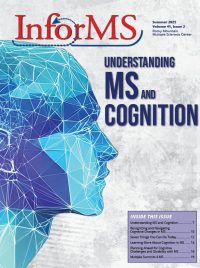Tom Stewart is both an Attorney and Physician Assistant and has been involved in the medical and legal care of MS patients for more than two decades.
As discussed throughout this issue, MS is a chronic condition that can affect individuals in various ways, including cognitive decline. Fortunately, advancements in treatments mean that many people diagnosed with MS can maintain normal or near-normal functioning throughout their lives. Historically, the prognosis for individuals with MS suggested that most would eventually face disability. However, today’s landscape is more hopeful. Despite this progress, a sobering reality remains: more than one in four 20-year-olds, regardless of health status, will lose the ability to work before retirement age. This highlights the importance of planning for potential cognitive challenges and securing protections against disability.
Sources of Protection
There are three primary sources of protection for individuals facing disability and inability to earn a living: private disability insurance, Social Security Disability Insurance (SSDI), and family and friends.
Private Disability Insurance: For those with MS, employer-sponsored private disability insurance can be especially important, as purchasing individual policies post-diagnosis is often not an option. These plans typically offer better income replacement (50–60% of salary), shorter waiting periods, and easier qualification compared to SSDI.
If available, individuals should consider purchasing additional coverage through their employer. Because MS may have a genetic component, encouraging family members to obtain coverage before any diagnosis may also be wise.
It’s important to understand your policy—particularly distinctions between “Own Occupation” (coverage for being unable to do your current job) and “Any Occupation” (coverage only if you can’t do any job), and exclusions for pre-existing conditions, which often expire after the first year.
Most private insurers require claimants to apply for SSDI. While SSDI has a higher standard for proving disability, qualifying for both benefits may reduce the private payout by the SSDI amount.
Social Security Disability Insurance (SSDI): SSDI is a vital resource for those without private coverage. Eligibility depends on having paid into the system and having worked recently enough. Taking time off work for personal reasons—such as caregiving—can jeopardize future eligibility, so part-time work may help preserve access.
Public-sector employees should be aware that some jobs don’t contribute to Social Security but instead to alternatives like PERA, which may require extended service before disability benefits become available.
Family and Friends: While formal insurance programs are essential, the support of family, friends, and community organizations often plays a critical role during periods of disability. For many, this informal network can help bridge financial or emotional gaps that formal systems don’t fully address.
Finally, be prepared for a gap in income—SSDI has a mandatory five-month waiting period, and initial claims are frequently denied, requiring appeals that can delay benefits even longer, sometimes up to two years.
Preparing for Cognitive Challenges in MS
While securing financial and legal protections is a critical part of long-term planning, it’s equally important to take steps that directly address the cognitive impacts of MS—especially since these can subtly but significantly affect daily functioning and job performance. Cognitive changes may not be as immediately visible as physical symptoms, but they can present real barriers to continued employment and independent living. Fortunately, early recognition and strategic management can make a substantial difference.
By taking proactive measures, individuals with MS can advocate effectively for themselves and access the benefits and accommodations they may need. The following strategies offer a roadmap for identifying, documenting, and addressing cognitive challenges to support long-term well-being and professional sustainability:
1. Documentation: Be Detailed, Early, and Work-Focused
Accurate and timely documentation of cognitive challenges is crucial – especially as they begin to affect your job. As soon as symptoms begin to affect work performance, it’s important to record specific instances of how these challenges manifest. Instead of using vague descriptions, provide concrete examples that illustrate difficulties. For instance, note situations where memory issues hinder your ability to complete tasks or instances of fatigue that affect productivity. This detailed record can be invaluable for future discussions with healthcare providers or when applying for disability benefits. It’s important that your neurologist and other specialists document these limitations in your medical record, in addition to your primary care physician. It’s critical that your medical record reflects your workplace limitations.
It’s not enough to simply tell your clinician “I’m fatigued” or “I have memory problems.” You must connect those symptoms to workplace limitations. For example:
“My fatigue is so severe that I need to nap during the day, which interferes with my ability to meet expected productivity levels.”
“I can only concentrate for 20–30 minutes at a time before I lose track of what I’m doing, which makes completing complex tasks difficult.”
This type of specific, functional language is critical in supporting future disability claims or accommodation requests. Begin this documentation process as soon as your symptoms start impacting work—not months later when you’re filing a claim. That early record can help validate your trajectory if things worsen over time.
2. Neuropsychological Testing
Neuropsychological testing plays a critical role in establishing a clinical baseline and offering objective evidence of cognitive limitations. Early testing can help identify issues that may not be immediately obvious, providing a clearer understanding of how MS impacts cognitive function. These evaluations can guide treatment decisions and support claims for accommodations or disability benefits. Therefore, it’s advisable to pursue testing as soon as cognitive symptoms are noticed.
3. Workplace Accommodations – Leverage Available Tools
Utilizing available resources can significantly aid in maintaining employment. Programs like the Family and Medical Leave Insurance (FAMLI) and the Family and Medical Leave Act (FMLA) provide options for intermittent leave during exacerbations or heightened symptoms. Additionally, accommodations under the Americans with Disabilities Act (ADA) can include flexible work hours, or the option for remote work. Engaging with your employer to explore these options can create a supportive work environment that enables continued productivity. A great resource for getting started is the Job Accommodation Network, a service of the US Department of Labor, at AskJAN.org.
4. Disclosure Considerations – Timing Matters
Deciding whether to disclose an MS diagnosis at work is a nuanced and personal decision. It should be approached strategically to access necessary legal protections and accommodations. Disclosing your condition can open doors to support systems that may otherwise be unavailable. However, it is essential to consider the timing and manner of disclosure, as failing to do so may result in missing critical resources that could assist in managing your condition.
5. Clinical Support: Align Your Care Team with Your Workplace Needs
Having a knowledgeable clinical team is vital for successfully navigating the complexities of disability claims. Ensure that your healthcare providers are prepared to advocate for you and recognize the significance of supporting your application for benefits. A strong medical record, backed by your clinical team, can make a significant difference in the outcome of any claims for disability support. Communication with your healthcare providers about your workplace challenges and the necessity for documentation is essential for a successful process.That gives your clinicians the information they need to document your limitations accurately in medical records and support any necessary claims.
For example, describing “fatigue” generally isn’t as helpful as stating:
“I experience such severe fatigue by mid-morning that I can’t complete a standard eight-hour workday.”
These detailed descriptions allow your providers to be effective advocates, whether supporting an accommodation request or certifying eligibility for disability benefits.
A Proactive Path Forward
By proactively addressing these aspects, individuals with MS can better prepare for and manage cognitive challenges, ultimately enhancing their ability to function effectively in both their personal and professional lives. Taking early and intentional steps — documenting symptoms and associated limitations, seeking clinical evaluation, understanding legal protections, and utilizing available workplace accommodations — can make a big difference in long-term outcomes.
Although cognitive decline may feel unpredictable or overwhelming at times, having a clear plan in place empowers individuals to maintain control over their circumstances. With the right support system, medical care, and legal safeguards, it is possible to preserve quality of life, continue meaningful work, and navigate the evolving challenges of MS with confidence and resilience.






